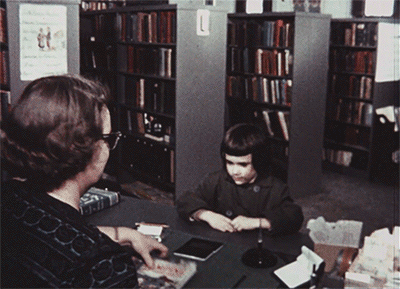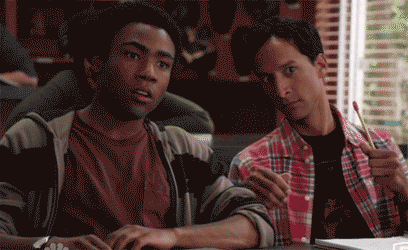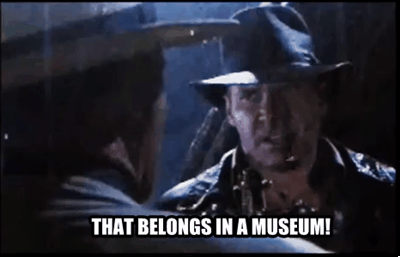Libraries can seem dull, dusty and unnecessary—especially when you can stay home and use your handy computer. But if you need the most factual, detailed and relevant information, it’s time to kick it old school. Librarians can help cultivate and perfect the research process and they’re ready to share their secrets. Don’t decide on that research project thesis just yet.
Take advantage of the 10 ways your college library can help you land an A on your research project.
1. Actually get to know what resources your college library offers

You may think your college library is just a place to study. But do you know about all the resources it offers, built into tuition? “Twenty years ago, every college freshman was marched over to the library and given a basic introduction to it, and that’s not happening anymore,” said Indiana University Head Social Sciences Librarian Nicholas Wyant. “I think that’s why especially now, you’re seeing seniors even that have no idea that they can even check out books or how to find them.” Take advantage of your free source for books. Before buying next semester’s textbooks, check the online catalogue to see if the library already has them. And don’t even think about setting a thesis for that research project before checking out your library’s available resources.
2. Bother the reference desk

Even if you never ventured into the depths of the stacks, you’ve probably passed the reference desk. Little did you know you were passing by your first step to acing that research project. “Students are very hesitant to come up and bother these people, but they’re not bothering them, that’s their job,” said Wyant. “I think with being able to do so much online the thought of going up and asking an actual person sitting there, can sometimes be a little intimidating to students.” Want to ease into your relationship with the library? Look for a “Contact Us” section online and chat with a librarian there to get started.
3. Score some one-on-one time

Muster up some courage and get some personalized help from your very own librarian. “What a librarian can do is they can sit and have a conversation, or what a librarian will call a reference interview to help a student better understand their question,” said Wyant. If you’ve already perfected your research project question, they can help you find the sources you need to take it to the next level. “You can’t go in on your own and figure out what are the sources that not everyone has access to,” said Wyant. “But if you talk to your librarian they can direct you to things either that have not been digitized or are just more difficult to find.”
4. Polish your research project question

“Students and everyone else, start with a clumsy question that has to be refined over and over and over again,” said Wyant. “You know it’s kind of like polishing a rock, so it starts really rough and through repeated methods of sanding, it gets super smooth.” So if your first shot at a research topic is deemed “too broad,” talk to a librarian. “Librarians get you to think of things in ways that you weren’t originally.”
5. Work their connections

Chances are, you’re not an expert in your field of study. Lucky for you, someone is. “Subject librarians within any university know who their colleagues are,” said Wyant. Librarians can connect you with experts who can help refine your research. “That’s what librarians are for, to know all this weird stuff and then to be able to tell students where to find it.”
6. Get off Google

Ready to write a paper you and your professor feel proud of? Then stop citing Wikipedia. While it’s a nice jumping off point, a solid research project needs to go a little deeper than Wiki’s neatly organized subcategories. “We’ve gotten culturally to the point where we think that Google and smartphones can answer everything,” said Wyant. “But the truth of the matter is that they can scrape the surface really broadly, but they can’t provide the depth that we need and they can’t massage out the details.” Pro tip: The materials in your college library have been vetted by the librarians. So you know you’re getting reliable sources.
7. Go beyond the bookshelf

Don’t rule out all internet research though. “At IU we have just under 1,000 academic databases, JSTOR is one of them, that is a huge amount of specific resources,” said Wyant. “A librarian can help students figure out what words they should be using when searching. That’s a big thing that we do, helping people think about their research in the terms an academic would use.” And you thought libraries were just about dusty old books.
8. Find Primary Sources

Then again, sometimes dusty old books are just what you need. Primary sources give you a chance to show your professor your leg work. Because frankly they’re hard to find, deal with and integrate into your research project. “Primary sources are something that everyone struggles with, undergraduates, graduate students and even faculty, because primary sources are very special little snowflakes,” said Wyant. “Now we’re buying an increasing number of digitized primary resources that are available to us on these digital databases that people would just not have access to otherwise.”
9. Take out loans you don’t need to pay back

I get it, you’re in college and the mention of “loans” set you on edge. That’s totally fair. Interlibrary loans are certifiably safe and have a low-risk/high-return. “If we don’t have a journal article or book that a student needs, we can get that for them for free from a different university library,” said Wyant. Literally with the click of a button you can have a book delivered to the library of your choosing. Embrace that power.
10. Stand apart from the crowd

“When I say microfilm, 90 percent of the people in a class will look at me like I’ve just said a made-up word,” said Wyant. “Contrary to popular belief not everything has been digitized. When students want to do something original, it’s looking at that material that has not been digitized, that’s what’s going to set your paper apart from everyone else’s.” Your professor will thank you for turning in something they haven’t seen a thousand times before.



















